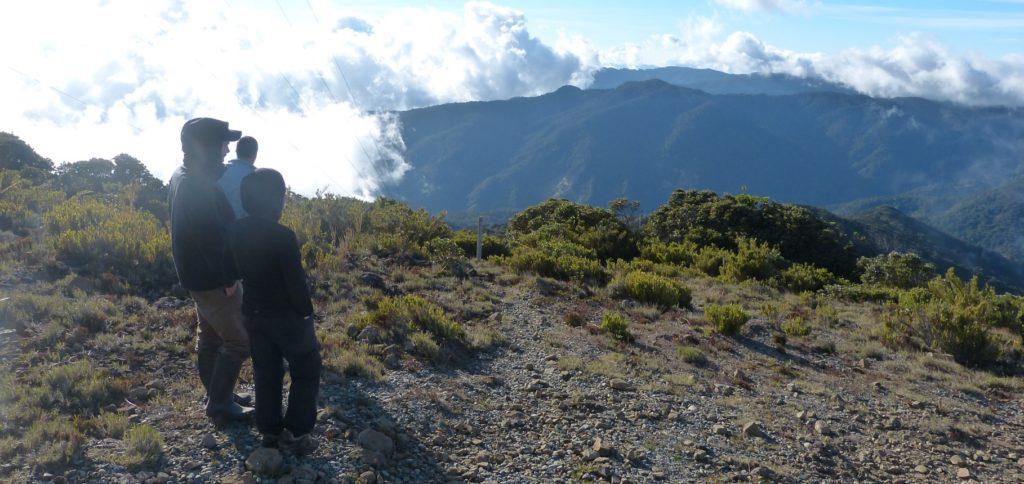What is your bac kground? Where are you from? What do you study? What are you most interested in, scientifically?
kground? Where are you from? What do you study? What are you most interested in, scientifically?
My name is Miguel, I am from Madrid, Spain. Currently I am a PhD student at NMBU in Norway. With my project I try to understand how competition and disturbance shape the distributions of plants along elevation gradients in Costa Rica. My interest covers all aspects of disturbance , from the more theoretical questions about succession ecology to the role of disturbance as a conservation tool. Also I am really interested on the perception of disturbance by the scientific community and society, although for my PhD I focus more on the ecological and conservation aspects of disturbance. Through a series of forest inventories at both old growth and secondary forest; and a transplant experiment along an elevation gradient, I am trying to improve my understanding about disturbance.
Since I was little I have been really curious about nature and different cultures. This interest took me to start a bachelor in biology at the Universidad Autonoma de Madrid (UAM), where I developed a passion for plant ecology, human ecology and ethnobotany. During the last stages of my bachelor I got the chance to study the relations between temperate tree communities and soils along elevation gradients. With a thirst for understanding better the world I live in I decided to continue my studies doing a masters at Wageningen University in the Netherlands about forest ecology and nature conservation. There I realized how strong is the connection between nature and society and how important is to understand it. Following my interest in forest ecology I visited the Missouri Botanical Garden in Saint Louis and did my master thesis there; where I tried to disentangle the relevance of spatial auto correlation and the environment determining tree species turnover along a tropical and a temperate elevation gradient. Once I was done with my thesis, after months sitting in front of a computer with the head full of numbers, graphs and theories about community ecology it was time to get a different perspective of the world and its people. As master internship I got the chance to go to Peru and explore the social and ecological limitations of wild rubber extraction at Ashaninka communities along the Pichis river watershed, in collaboration with CIFOR and MINAM. After this great experience it was definitely more clear that social and natural sciences should go hand by hand in order to achieve both conservation and development goals.
What are your goals for the upcoming course in Peru? How will you know if you’ve met these goals?
My goal for this course is to get some experience with the analysis and field collection of plants functional traits. Also to get a good overview about how disturbance affects functional traits along an elevation gradient. For one of the chapter of my thesis I want to investigate the functional adaptations that allowed the surviving transplanted seedlings to persist under two contrasting light environments (understory and gap) along an elevation gradient. After the course I would like to have an idea about how to measure the different allocation strategies (leaves/stem/roots) of my seedlings in the experiment
What are you most excited about, with respect to the upcoming course and trip?
I am really excited to be back in Peru and visit its beautiful landscapes and cultures! Also I am looking forward to share this experience with such a group of interesting students and teachers, I am sure I will learn a lot from them.
What do you anticipate people will think about climate change in Peru? Do you think most people will accept that the planet is warming, and that this is largely being caused by human activities? Or will this topic be controversial?
The opinions will change a lot depending on which kind of activities the interviewees make for living. If they depend directly on nature, like farmers, they will be more aware of certain aspects of climate change like extreme climatic events, more frequent or intense pests attacks, decreases in productivity or new diseases of their cattle. In general people will recognize that the environment is changing due to human activities, although probably many wont be aware of the negative consequences of this changes in their lifestyles. Finally I am not so sure if people will be familiar with the concept of warming planet and have a strong opinion about that specifically. I guess the way to address their awareness about climate change could be through the potential side effects they may be suffering currently.